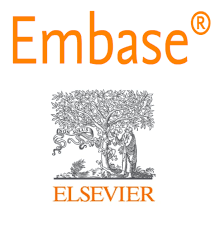A STUDY ON PREVALENCE OF CHOLANGIOCARCINOMA AND ITS CAUSING RISK FACTORS AMONG POSTPARTUM WOMEN OF URBAN RESIDENTS OF WEST BENGAL: A CROSS-SECTIONAL, OBSERVATIONAL STUDY
Keywords:
Cholangiocarcinoma (CCA), malignancy.Abstract
Background: Cholangiocarcinoma (CCA) is a rare but aggressive malignancy arising from the biliary epithelium. Although more prevalent in certain global regions, emerging evidence indicates an increasing trend in urban populations of India, including West Bengal. This study aims to assess the prevalence of cholangiocarcinoma and its associated risk factors among urban residents of West Bengal. Methods: A cross-sectional, observational study was conducted with 24 patients diagnosed with cholangiocarcinoma in tertiary care hospitals across urban West Bengal. Demographic data and clinical risk factors were collected via structured interviews and medical records. Statistical analysis was conducted to determine the most common associated factors. Results: Out of the 24 cases studied, a male predominance was observed (62.5%). The mean age of presentation was 58.6 years. The most common risk factors were chronic liver disease (54.1%), parasitic infections (29.1%), primary sclerosing cholangitis (20.8%), and hepatolithiasis (16.6%). Conclusion: The findings highlight a growing burden of cholangiocarcinoma in urban West Bengal, with multiple identifiable risk factors, many of which are preventable or manageable. This underscores the need for improved surveillance, early diagnosis, and public health interventions targeting modifiable risk factors.
.png)









